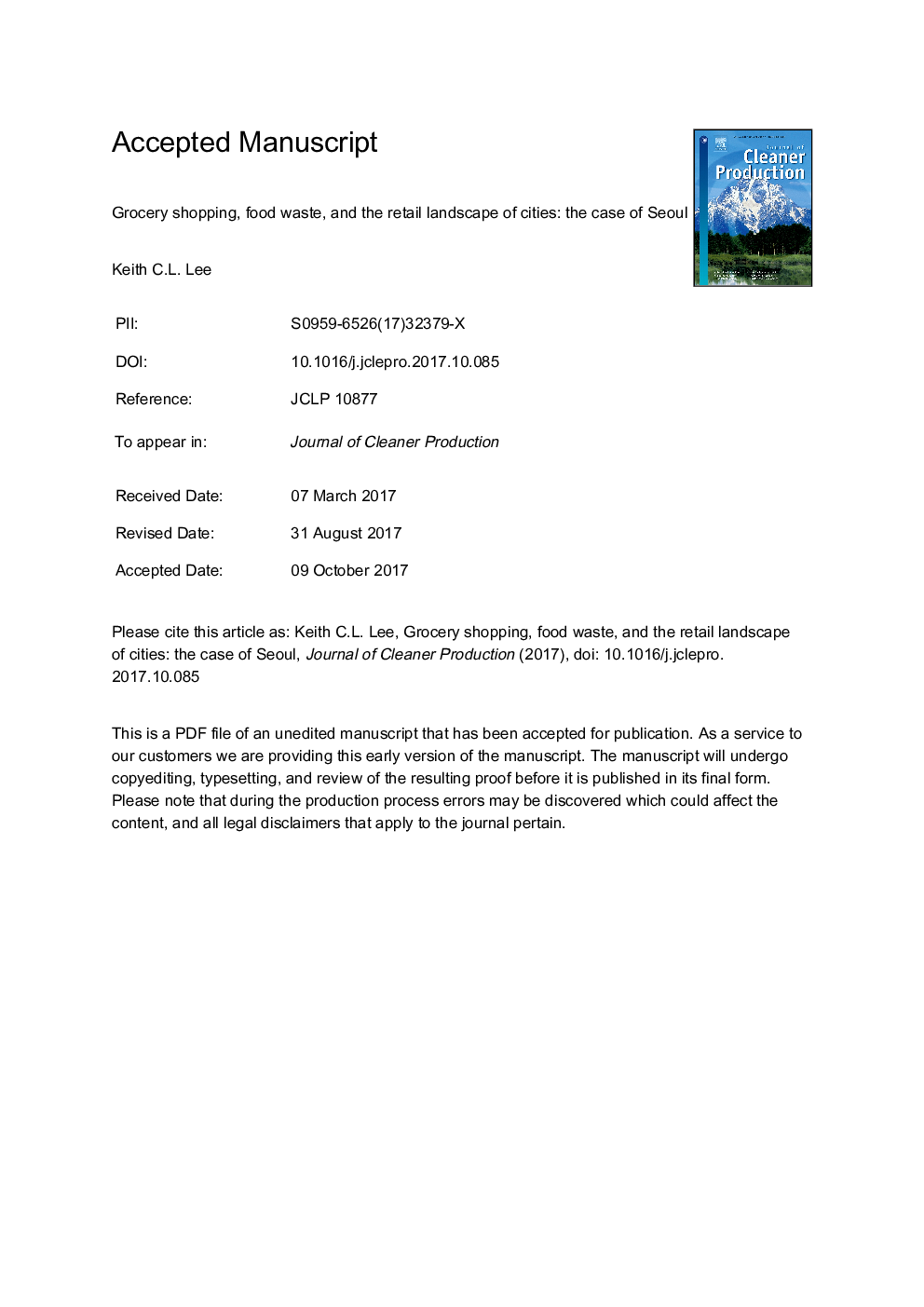| Article ID | Journal | Published Year | Pages | File Type |
|---|---|---|---|---|
| 8099847 | Journal of Cleaner Production | 2018 | 39 Pages |
Abstract
The reasons for household food waste are complex and not yet fully understood, especially with regards to how the food retail sector might influence and interact with food management practices. This study explores the causes of household food waste from this perspective, drawing from practice theory and the concept of systems of provision. Survey data from 460 Seoul households is analyzed using bivariate and multivariate analyses to assess whether avoidable food waste per household member is affected by the type of food retailers (e.g. supermarkets, hypermarkets, traditional markets, etc.) a household buys its groceries from. Seoul was chosen as the research site due to its diverse food retail sector and South Korea's distinctive food waste policy environment. The results indicated that households' grocery shopping trips take on different characteristics depending on the type of retailer visited, and that these characteristics, including travel time and buying frequency, are differentially associated with over-purchasing and avoidable food waste. Overall, this study suggests that the influence of food retailers on household food waste is not limited to marketing promotions, but also extends to the ways they may shape households' grocery shopping patterns. As such, waste reduction policies and initiatives need to take urban retail development patterns into greater account in order to more effectively tackle the problem of household food waste.
Related Topics
Physical Sciences and Engineering
Energy
Renewable Energy, Sustainability and the Environment
Authors
Keith C.L. Lee,
